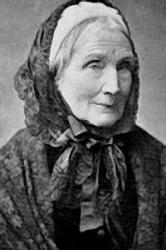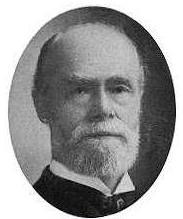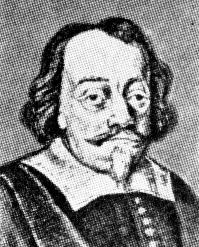Planning worship?
Check out our sister site, ZeteoSearch.org,
for 20+ additional resources related to your search.
- |
User Links
Person Results
Julian, of Norwich
1343 - 1419 Person Name: Julian of Norwich, 15th C. Meter: 8.8.8.8.8 Author of "Mothering God, You Gave Me Birth" in Hymns for a Pilgrim People
Julian, of Norwich
Eliza R. Snow
1804 - 1887 Person Name: Eliza R. Snow, 1804–1887 Meter: 8.8.8.8.8 Author of "Awake, Ye Saints of God, Awake!" in Hymns of the Church of Jesus Christ of Latter-day Saints
Eliza R. Snow
Mary Botham Howitt

1799 - 1888 Person Name: Mary Howitt, c. 1804-1888 Meter: 8.8.8.8.8 Author of "Thou, earth, art ours" in The Beacon Song and Service book Howitt, Mary, née Botham, second daughter of Samuel Botham, a member of the Society of Friends, was born at Uttoxeter, Staffordshire, circa 1804, was married in 1823 to William Howitt, and died Jan. 30, 1888. Her publications have little in common with hymnody. They include poems, novels, translations of Swedish and Spanish works, and numerous contributions to magazines. In addition she was joint author with her husband of Literature and Romance of Northern Europe, 1852, &c. Her hymns include:—
1. God might have made the earth bring forth. The Use of Flowers. From her Birds and Flowers, and Other Country Things, Lond., N. D. (Preface, Sept. 28, 1837), p. 122, in 8 stanzas of 4 lines.
2. How goodly is the earth. Flower Services. From her Hymns and Fireside Verses, Lond., 1839, p. 167.
3. 0 spirit, freed from earth. Death and Burial. Altered from her poem, "The Ascent of the Spirit," in her Ballads and Other Poems, 1847, p. 318. Dr. Martineau dates this poem 1834.
Mrs. Howitt also contributed " Let me suffer, let me drain" (The Willing Disciple), and " Clothe me with Thy saving grace " (The Cry of the spirit) to Lyra Britannica, 1867.
-- John Julian, Dictionary of Hymnology
=============================
Howitt, Mary, p. 541, i. Her hymn “Let me suffer; let me drain," is the opening hymn of the Lays of the Sanctuary, 1859. She died Jan. 30, 1888.
--John Julian, Dictionary of Hymnology, Appendix, Part II (1907)
Mary Botham Howitt
Severus Gastorius
1646 - 1682 Person Name: Severus Gastorius, b. c. 1675 Meter: 8.8.8.8.8 Composer of "WAS GOTT THUT" in Singing the Living Tradition Severus Gastorius (1647-1682 ) was a cantor in Jena, central Germany.
The son of a Weimar school teacher, Severus was born with the family name Bauchspiess (later Latinised to Gastorius) in Oettern, near Weimar. In 1667, he started studying at the University of Jena. From 1670, he deputized for cantor Andreas Zöll in Jena and married his daughter the following year. Gastorius assumed Zöll's position after his death in 1677. One of his friends, Samuel Rodigast, wrote the hymn "Was Gott tut, das ist wohlgetan" for Gastorius when he was sick (to cheer him up as Rodigast writes in his dedication). Even before he recovered, Gastorius set it to music based on a melody by Werner Fabricius. The tune became widely known in Germany as the cantor students of Jena cantor sang it every week at Gastorius' door as well as when they returned home. Gastorius was buried on 8 May 1682 in Jena's Johanniskirche cemetery. Gastorius had requested that the hymn "Was Gott tut, das ist wohlgetan" be sung at his funeral.
Gastorius is also credited with composing music for the funeral motet Du aber gehe hin bis das Ende komme. It was sung at the funeral of the Jena professor of medicine Johann Arnold Friderici on 2 June 1672.
--en.wikipedia.org/wiki/
Severus Gastorius
Henry Dennis
Person Name: H. Dennis, 1818-87 Meter: 8.8.8.8.8 Composer of "EUPHONY" in The Methodist Hymn-Book with Tunes
Henry Dennis
Adam Reissner
1496 - 1575 Meter: 8.8.8.8.8 Author of "In Thee, Lord, Have I Put My Trust" in The Cyber Hymnal Reissner, Adam, was born in 1496 at Mündelsheim (now Mündelheim) in Swabian Bavaria. He first studied at Wittenberg, and then, about 1521, he learned Hebrew and Greek under Johann Keuchlin. He then became private secretary to Georg von Freundsberg (who died Aug. 20, 1528), and accompanied him during the campaign in Italy, 1530-27. After the capture of Rome in 1527 he went back to Germany, and spent some time at Strassburg, where he became a friend and adherent of Caspar Schwenkfeldt. He seems to have been living at Frankfurt-am-Main in 1563, but thereafter returned to Mündelheim, where he was still living in 1572. He appears to have died there about 1575. (Koch, ii. 156; Preface to his Historia Herrn Georgen unnd Herrn Casparn von Fründsberg’s [died Aug. 31, 1536] Vatters und Sons .... Kriegesthaten, Frankfurt-am-Main, 1568. The British Museum copy is unmistakably dated on title 1568, but the preface is dated Jan. 31, 1572.)
Three of Reissner's earlier hymns are in Zwick's Gesang-Buch, 1536-40. His later hymns, including a translation of the hymns of Prudentius, are collected in two manuscripts, both dated 1596 (see Teglichs Gesangbuch . . . durch Adam Reusner, and contains over 40 hymns which may be regarded as by Reissner, the rest being by other writers of the school of Schwenckfeldt. Wackernagel, vol. iii., gives Nos. 170-194 under his name.
The only hymn by Reissner translated into English is:—
In dich hab ich gehoffet, Herr. Ps. xxxi. First published in the Form und ordnung Gaystlicher Gesang und Psalmen, Augsburg, 1533, and thence in Wackernagel, iii. p. 133, in 7 stanzas of 6 lines. It was included in V. Babst's Gesang-Buch , 1545, and repeated in almost all the German hymnbooks up to the period of Rationalism. It is one of the best Psalm-versions of the Reformation period. Included in the Unverfälschter Liedersegen, 1851, No. 629. The translation in common use is:--
In Thee, Lord, have I put my trust. A good translation, omitting st. vii., by Miss Winkworth, in her Chorale Book for England, 1863, No. 120.
Other translations are:—
(1) "Lord, let me never be confoundit." In the Gude and Godly Ballates, ed. 1568, f. 82; ed. 1868, p. 141. (2) "Great God! in Thee I put my Trust." By J. C. Jacobi, 1725, p. 33 (1732, p. 116). Repeated in the Moravian Hymn Book, 1754, pt. i., No. 118. (3) "Lord, I have trusted in Thy name." By Dr. H. Mills, 1856, p. 171. (4) "On Thee, O Lord, my hopes I lean." By N. L. Frothingham, 1870, p. 263. [Rev. James Mearns, M.A.]
--John Julian, Dictionary of Hymnology (1907)
Adam Reissner
Evan Stephens
1854 - 1930 Person Name: Evan Stephens, 1854–1930 Meter: 8.8.8.8.8 Composer of "WILLARD" in Hymns of the Church of Jesus Christ of Latter-day Saints Evan Stephens (1854-1930) was a Welsh composer, conductor, and teacher. Born in Pencader, Carmarthenshire, Wales, he emigrated to Salt Lake City, Utah in 1866. He directed the vocal music program at the University of Utah from 1885 to 1900, and directed the Mormon Tabernacle Choir from 1890 to 1916. Stephens is remembered for his many contributions to the cultural growth of the state of Utah, his leadership of the Mormon Tabernacle Choir, and for the numerous hymns and songs he composed. - from the Library of Congress authority file
Evan Stephens
Ebenezer Beesley

1840 - 1906 Person Name: Ebenezer Beesley, 1840–1906 Meter: 8.8.8.8.8 Composer of "ABRAM" in Hymns of the Church of Jesus Christ of Latter-day Saints Ebenezer Beesley was born December 14, 1840, in Oxfordshire, England. He had two wives. He married his first wife in March of 1859. They left England in April of 1859 to move to Salt Lake City. They travelled by foot and handcart from Omaha with a company of 250-300 people. He married his second wife in 1869. Beesley was a musician and music teacher who directed the Mormon Tabernacle Choir in Utah from 1880-1889 and other choirs in Utah. He wrote several hymns and edited Latter-day Saints Psalmody, the first LDS hymn book with both music and words.
Dianne Shapiro from Find a Grave website, "Ebenezer Beesley Composed Nearly a Dozen Hymns in the Current Hymnbook and Conducted the Choir for Almost a Decade," from The Tabernacle Choir Blog, March 13, 2014, and "Beesley, Sarah Hancock, [Reminiscences] in Handcart Stories" from The Church of Jesus Christ of Latter-Day Saints website "Pioneer Database" (accessed 1-1-2021)
Ebenezer Beesley
Valentin Thilo

1607 - 1662 Person Name: Valentin Thilo, 1607-1662 Meter: 8.8.8.8.8 Author of "O Jesu Sweet, O Jesu Mild" in Hymns for a Pilgrim People Thilo, Valentin, son of Valentin Thiel or Thilo [born Jan. 2, 1579, at Zinten, became diaconus of the Altstadt Church in 1603, and died of the pestilence at Königsberg in 1620], diaconus of the Altstadt Church in Königsberg, was born at Königsberg, April 19, 1607. He matriculated in 1624 at the University of Königsberg as a student of theology, but devoted himself more especially to the study of rhetoric. When the Professor of Rhetoric, Samuel Fuchs, retired in 1632, he recommended Thilo as his successor. The post was, at Thilo's desire, kept open for two years, during which he pursued his studies at the University of Leyden. On returning to Königsberg, he graduated M.A. there on April 20, 1634, and was thereafter installed as Professor of Rhetoric. During his 28 years’ tenure of office he was five times elected as dean of the Philosophical Faculty, and twice as Rector of the University. He died at Königsberg, July 27,1662. (Koch, iii 202; K. Goedeke's Grundriss, vol. iii., 1887, p. 135, &c.)
Thilo was a great friend of Heinrich Albert and of Simon Dach, and was with them a member of the Königsberg Poetical Union. He was the author of two text books on Rhetoric, published in 1635 and 1647. Some of his separately printed occasional poems are noted by Goedeke as above. His hymns were almost all written for various Festivals of the Christian Year. They are as a rule short and vigorous, and are somewhat akin to those of Dach. They appeared principally in the Preussische Fest-Lieder, Elbing, 1642-44 [Berlin Library], and in the New Preussisches vollständiges Gesang-Buch, Königsberg, 1650 [Hamburg Library]. A list of their first lines is printed in the Altpreussische Monats-schrift, Königsberg, 1889, p. 308, where evidence is given to show that they are by the younger Thilo, and not, as has sometimes been said, by the father.
The only hymn by Thilo translated into English is:—
Mit Ernst, o Menschenkinder. Advent. This is a fine hymn founded on St. Luke iii. 4, 5, and was first published in pt. i., Elbing, 1642, of the Preussische Fest-Lieder, as No. 8, in 4 stanzas of 8 lines, entitled "On the Fourth Sunday of Advent. Parate viam Domino," and marked as by "Valentinus Thilo." Lauxmann, in Koch, viii. 8, considers st. iii. the finest, and thinks that it may have been suggested by the remembrance of his beloved sister (wife of Pastor Kuhn, of the Rossgart Church in Königsberg), who died of the pestilence on Aug. 16, 1639, and as a picture of her character. Translated as:—
1. 0 sons of men, your spirit. This is a good translation of st. i.-iii., by A. T. Russell, as No. 35 in his Psalms & Hymns 1851.
2. Ye sons of men, in earnest. This is a good translation of the original form, by Miss Winkworth, as No. 84 in her Chorale Book for England, 1863. It is repeated, omitting st. iii., in the Ohio Lutheran Hymnal 1880, No. 121. [Rev. James Mearns, M.A.]
-- Excerpts from John Julian, Dictionary of Hymnology (1907)
Valentin Thilo


 My Starred Hymns
My Starred Hymns


